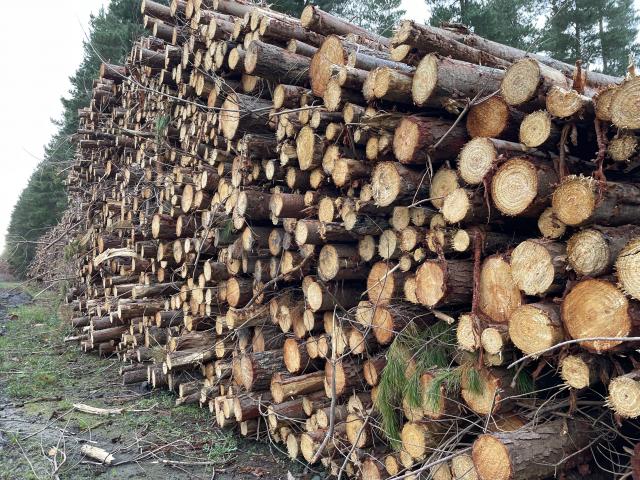Tyler Redway
ALTHOUGH the abolishment of China’s ban on timber importation has mostly been met with positivity, there have still been elements of the renewed trade which have left some organisations sceptical.
South Australian Timber Products Association chief executive David Quill said it was both a positive and a negative change depending on which topic was the main focus of conversation.
He said with the upcoming Borg Manufacturing expansion project and the pellet plant in Mount Gambier, it was likely there would be no surplus for timber outside of the region by the end of 2025.
“Given the situation with the wineries, it’s fantastic but in terms of the timber industry, it needs to be clearly understood we have no spare capacity available for any market other than the domestic one,” Mr Quill said.
“The long-term benefits are we can export material which we might be having problems with at the moment.
“For example, thinning of the forests produces material which is not good enough to be used for saw log, so the tops of the trees and the smaller ones, which you would refer to as ‘pulp log’.
“We need a market for that pulp log until such a time where local markets can be generated.”
Mr Quill said there were multiple factors to consider before praising the resumption of China’s timber trade.
One was the suspension of supply contracts for two locally owned sawmills in the region, which Mr Quill hoped would be regained.
Another factor involved the lack of transparency for the pricing of domestic sawlog.
Mr Quill said there needed to be a better understanding between forest growers and sawmillers as to the value of wood products.
He also said there needed to be a better idea on the range of prices for timber products, otherwise the market would become too restricted.
“It’s no different to buying a loaf of bread or selling a ton of wheat, all of those things need to have lower and higher boundaries in order to negotiate or it could easily become a monopoly and then the buying and selling would only be done between two parties,” he said.
“One of the roles of the Green Triangle Forest Industries Hub is to ensure we have good negotiations between the plantation owners or the growers of the wood and the users of the wood.
“If we want to have a long-term, sustainable industry then there is no point in us exporting a significant amount of wood at the expense of local industry.”
Two other factors which Mr Quill said could affect the surplus of timber were the bushfires which occurred to the east of the country more than three years ago and how Victoria and Western Australia were implementing a cessation for the harvesting of native forests.
Mr Quill predicted there would be an adequate supply of timber products to meet demand, but the industry or the government would need to assist in creating more timber plantations for future use if the demand were to increase.
“We can’t afford to allow any more decrease in the net area of plantations in the region, that’s the critical thing,” he said.
“We should only be exporting raw materials which we have no use for here otherwise we would be exporting our surplus.”








